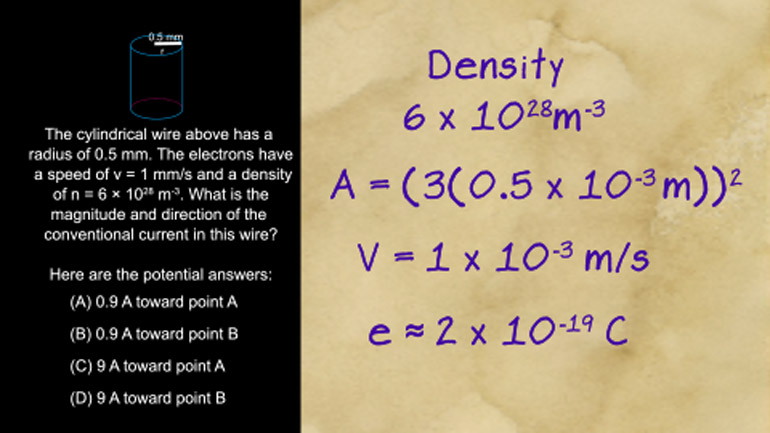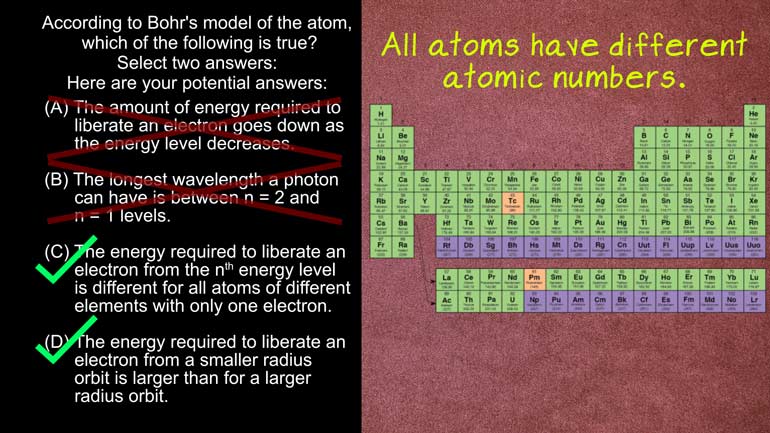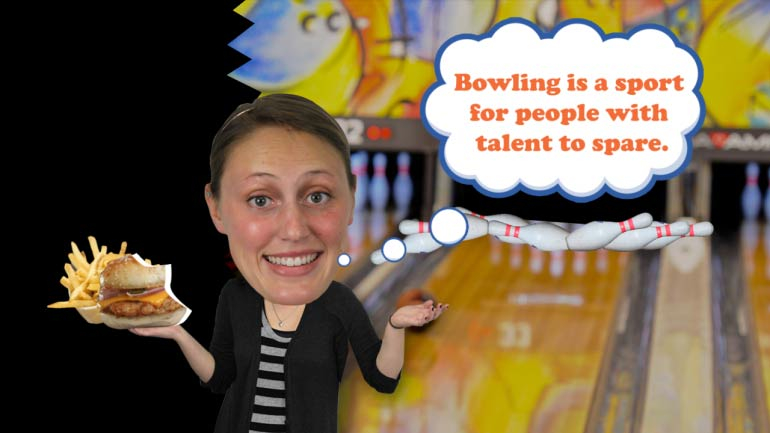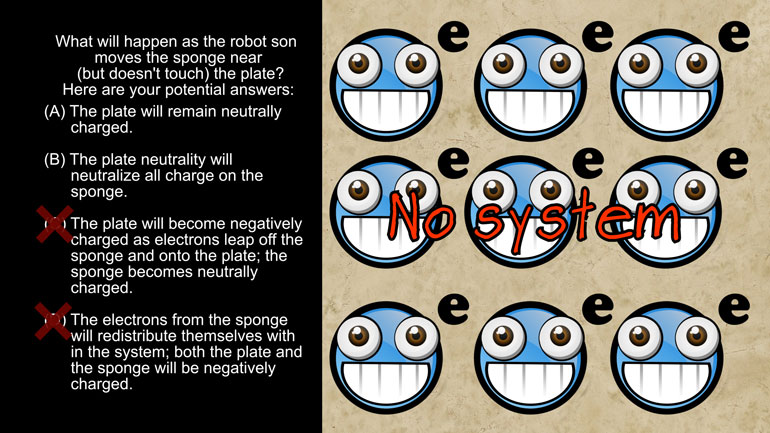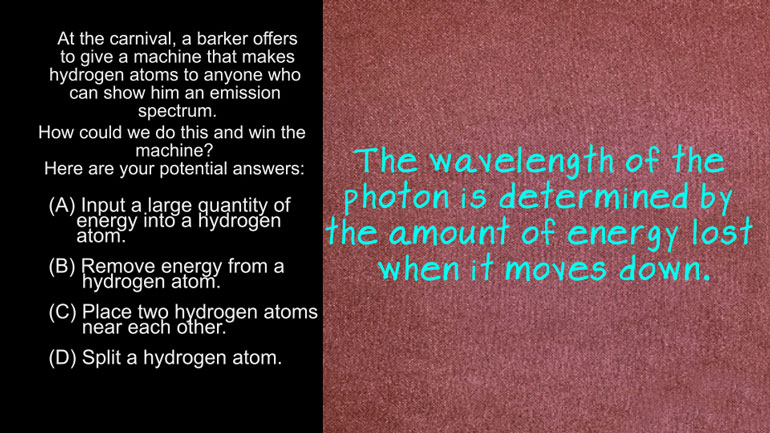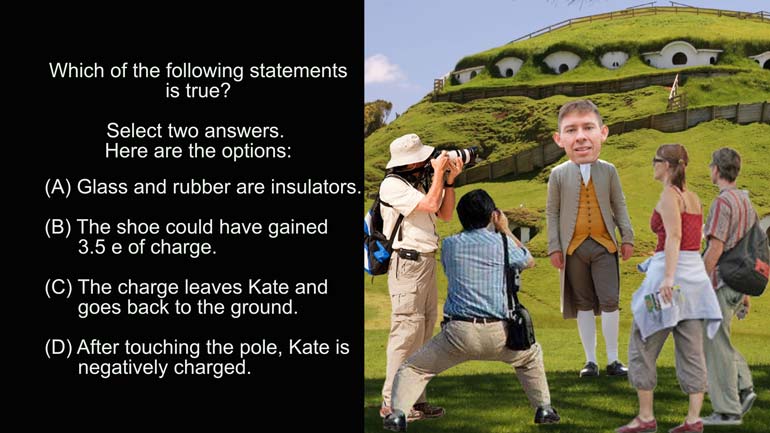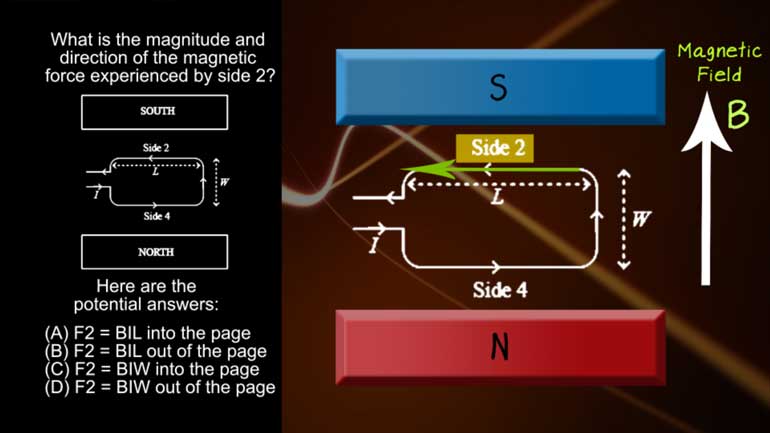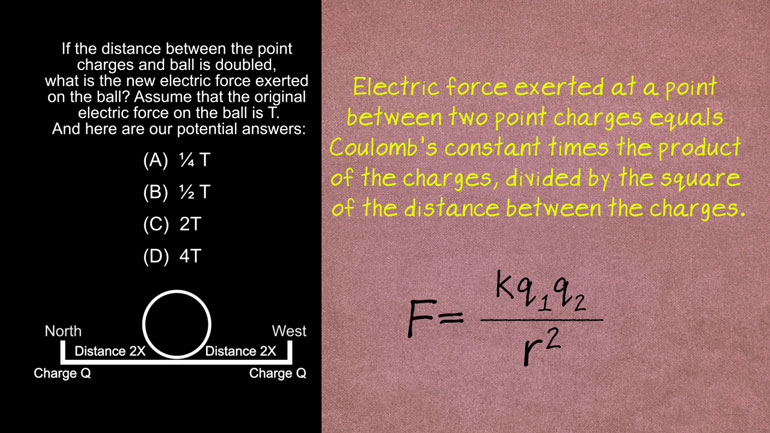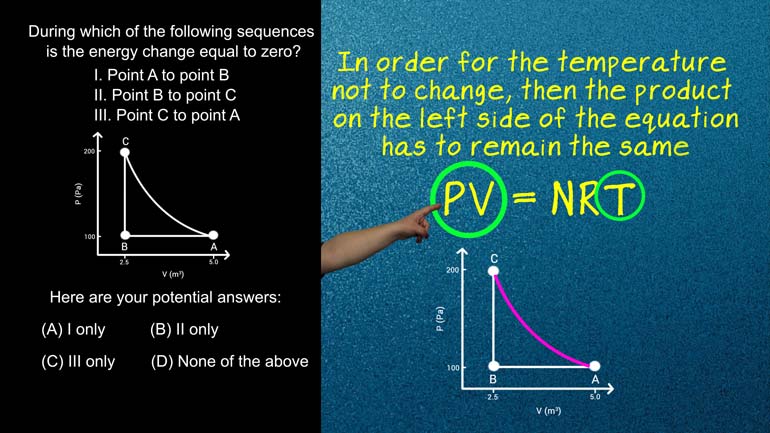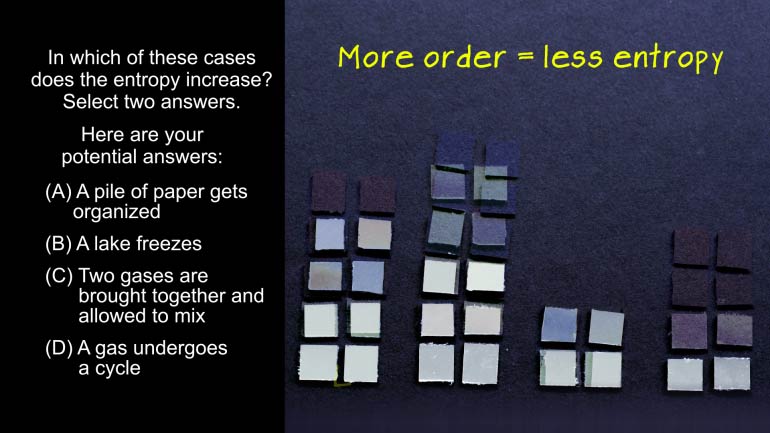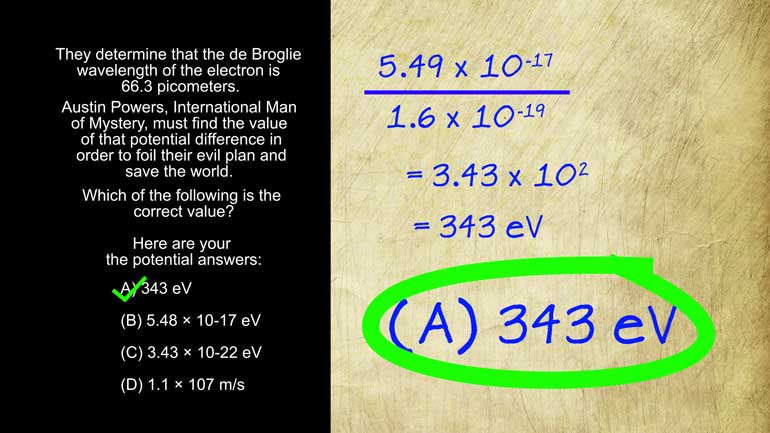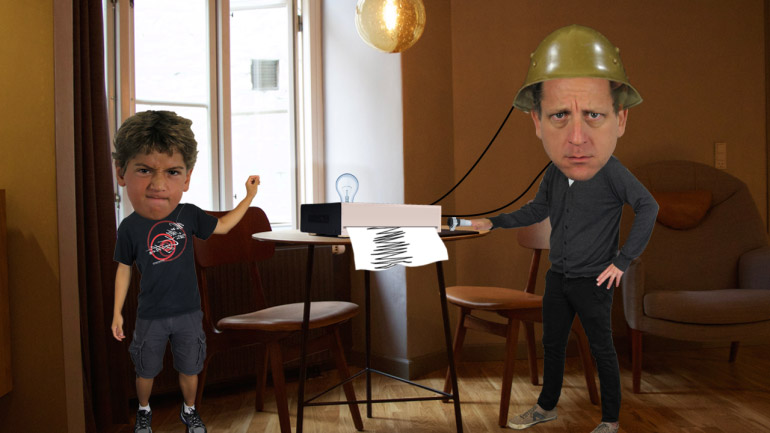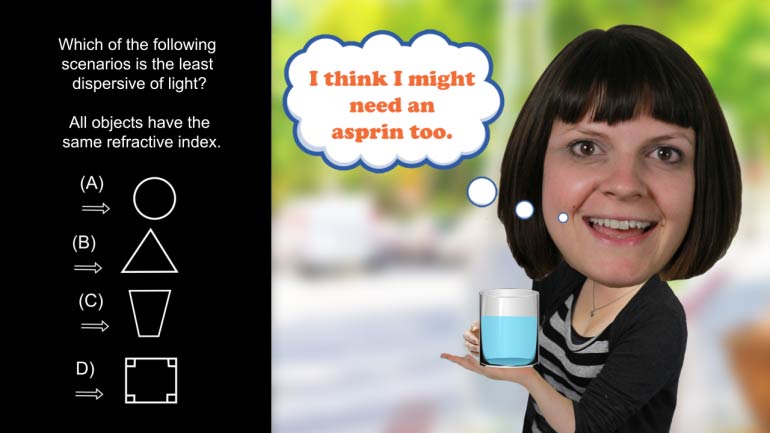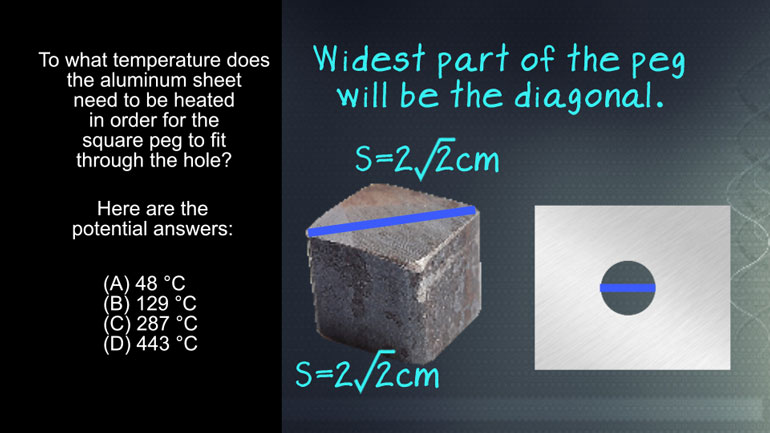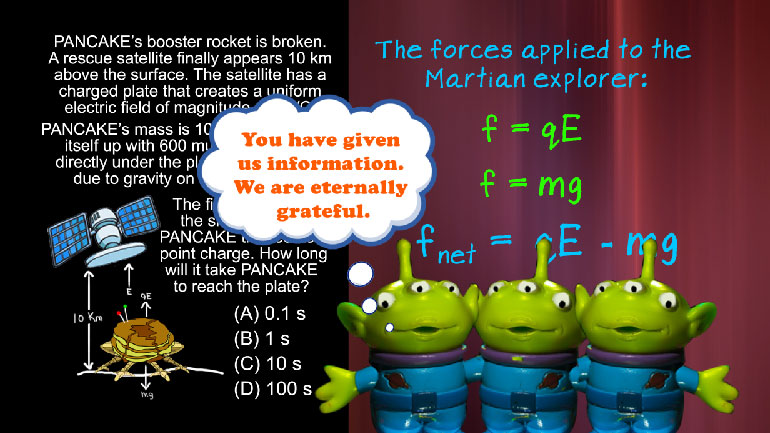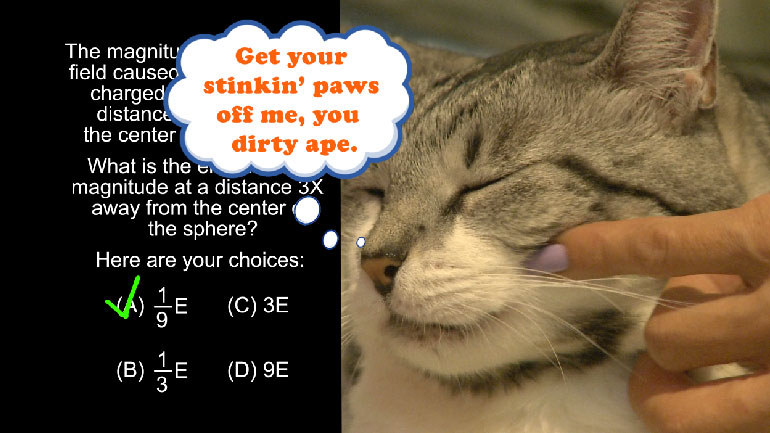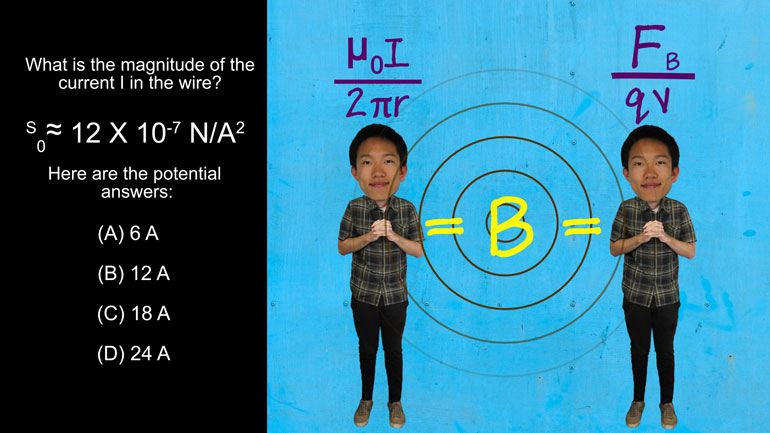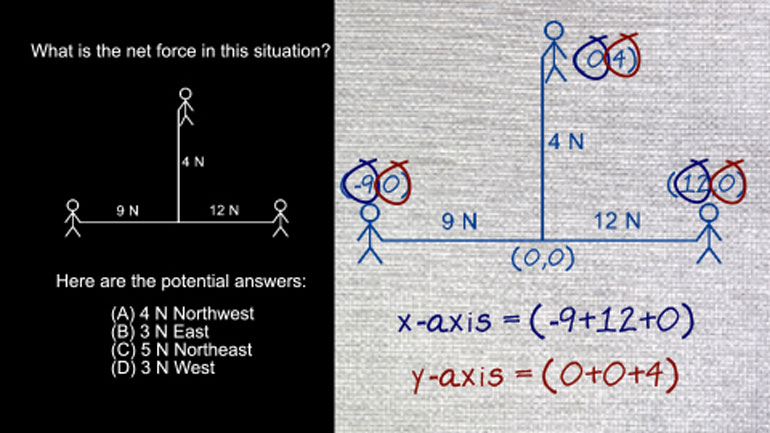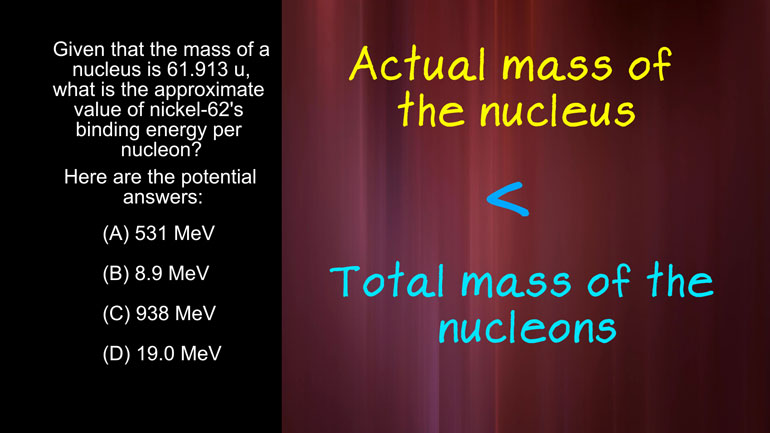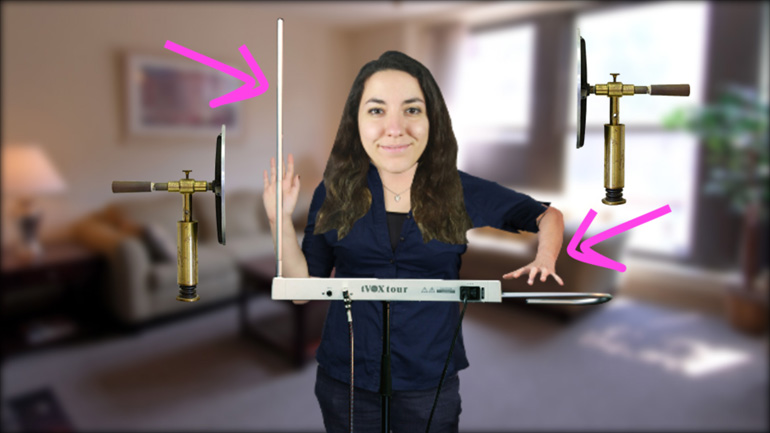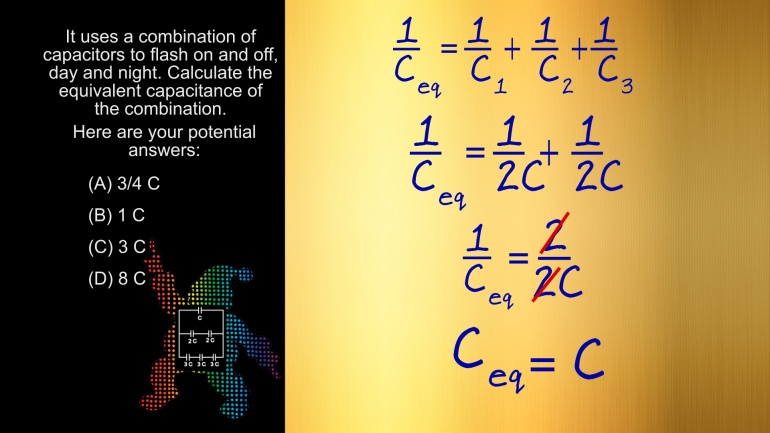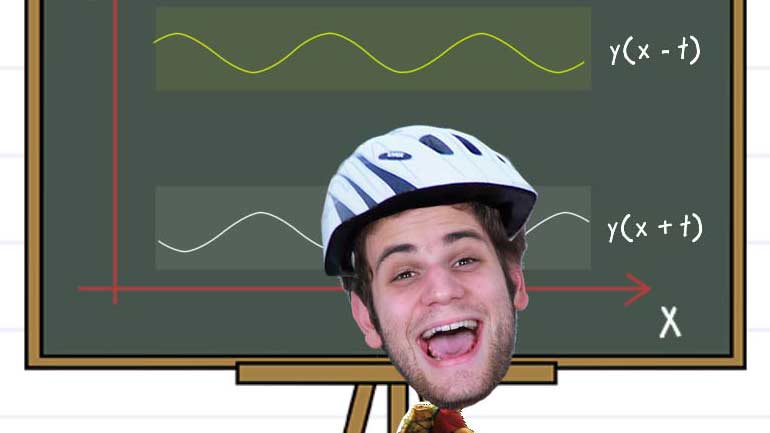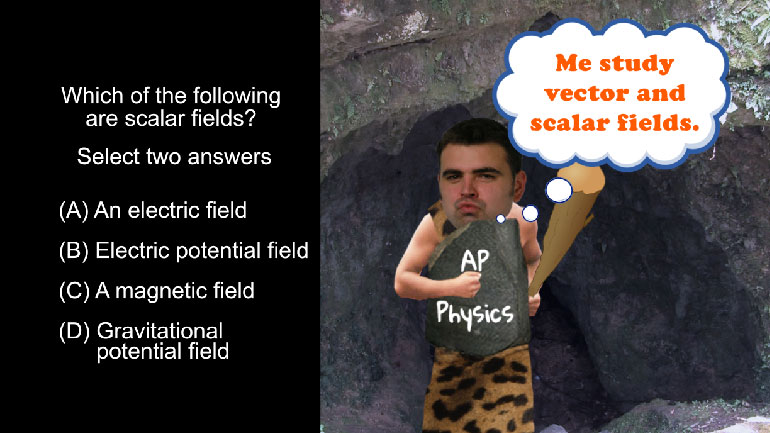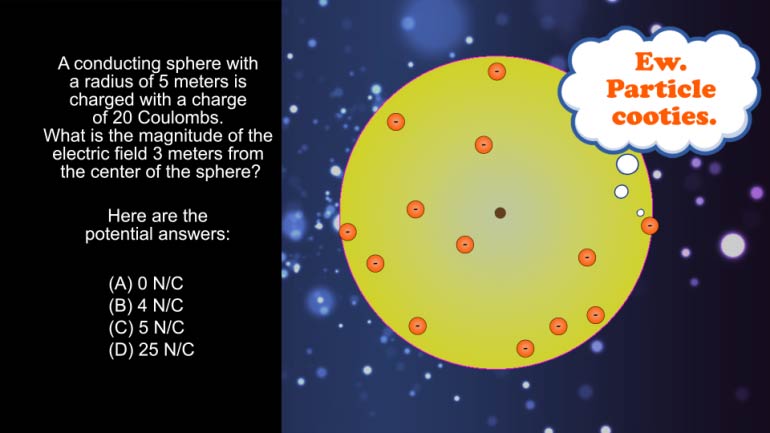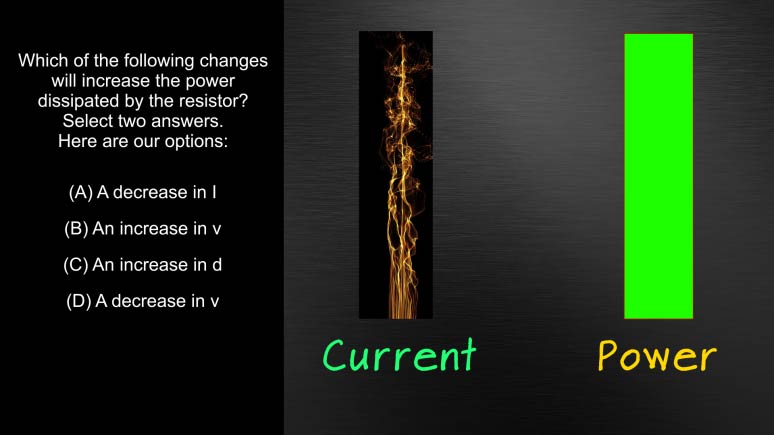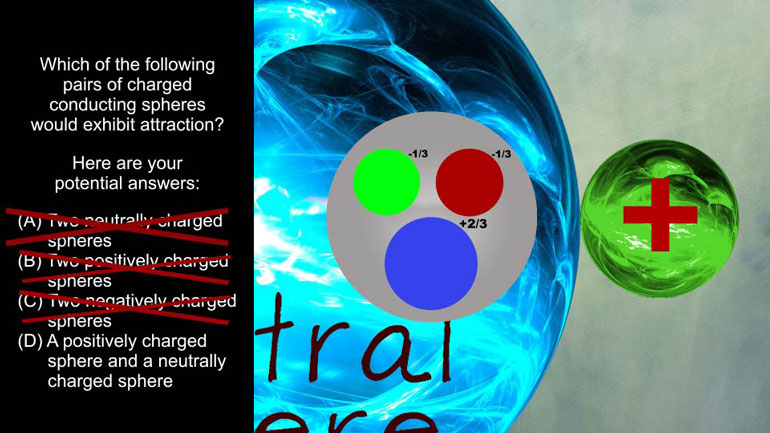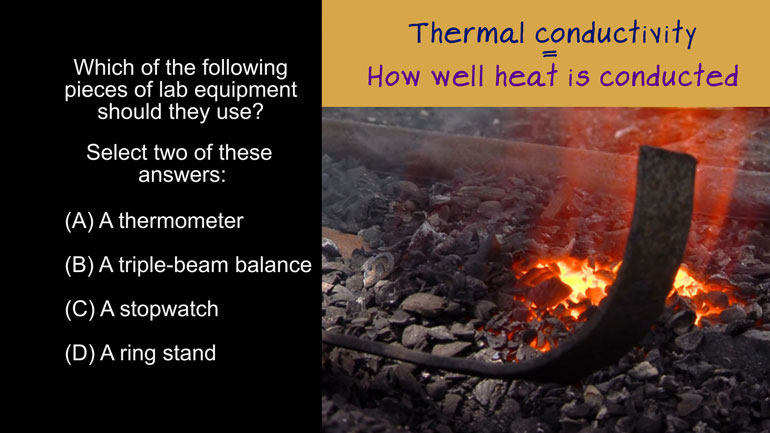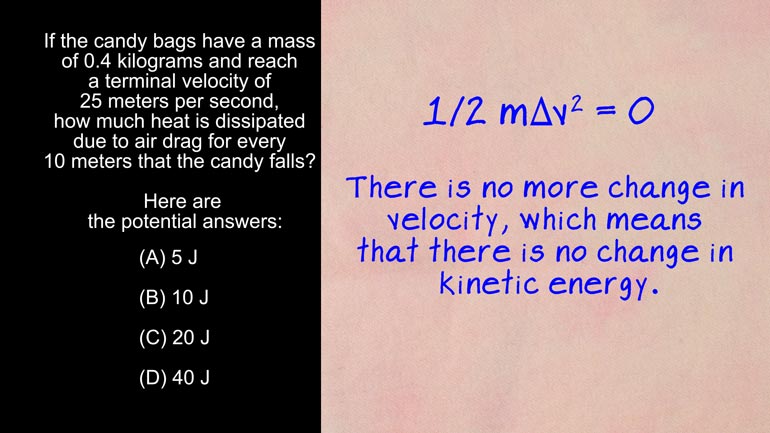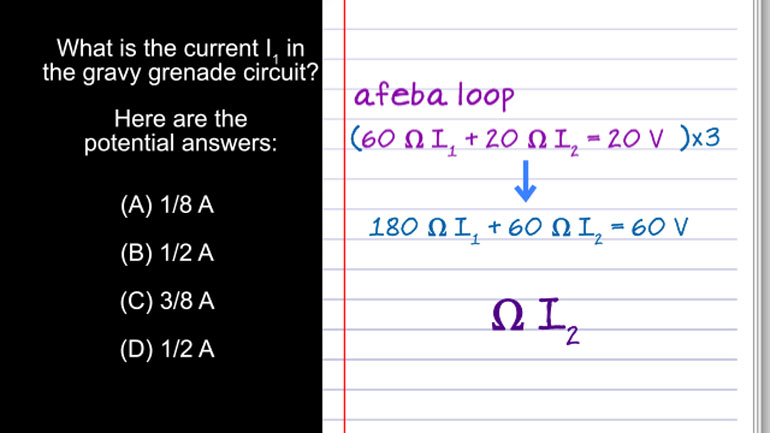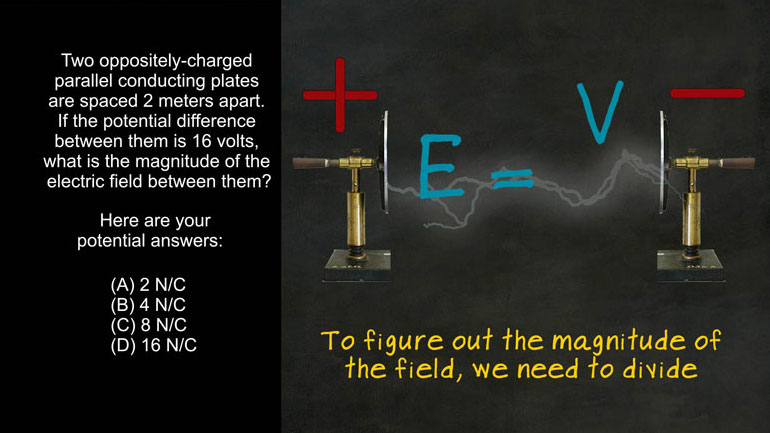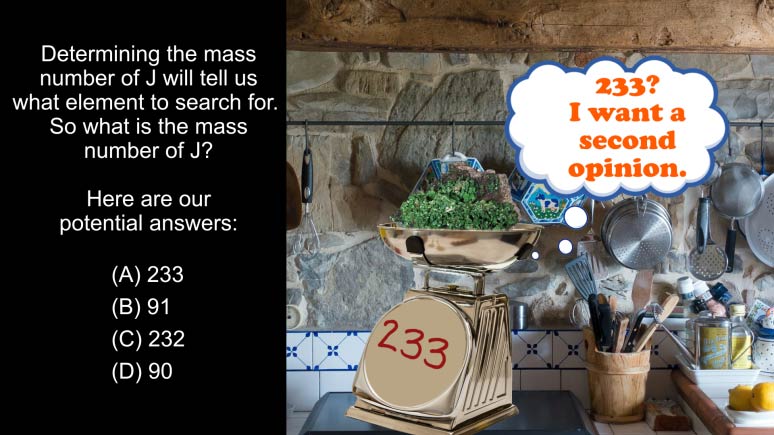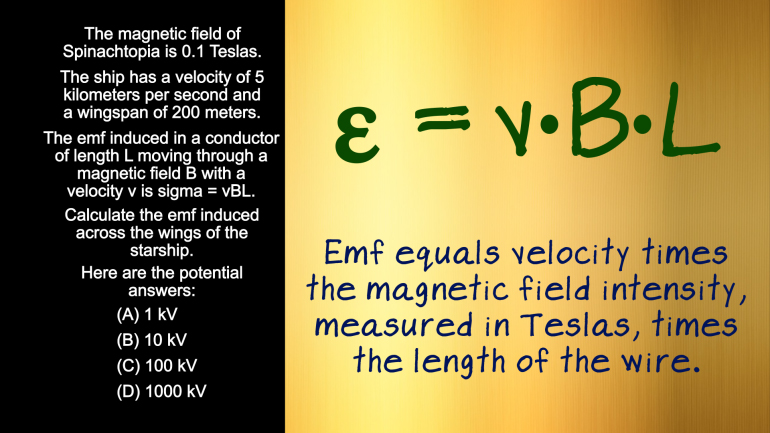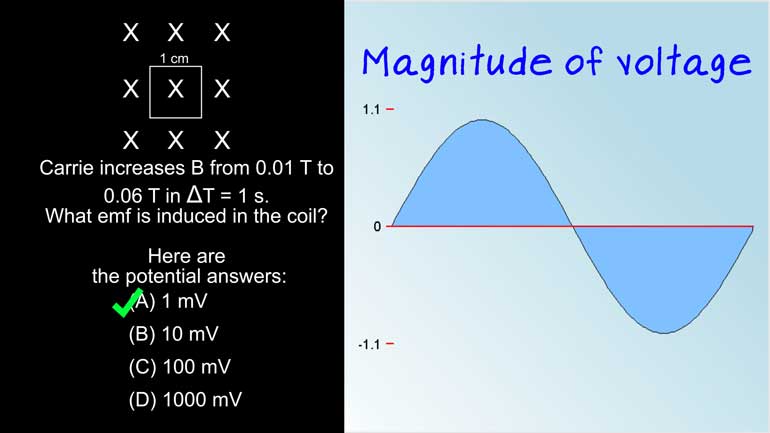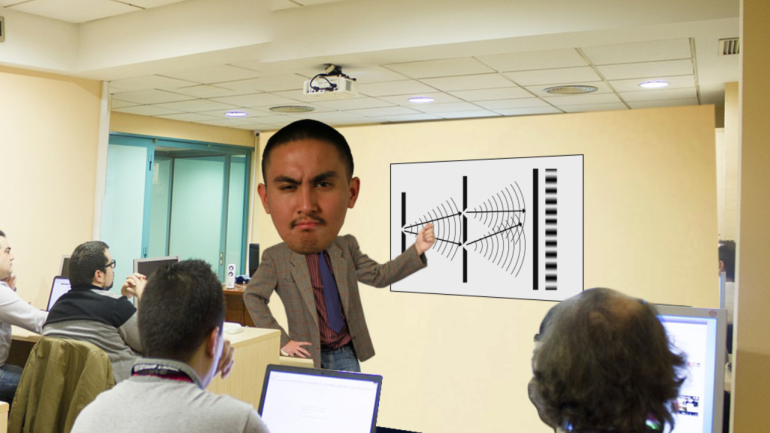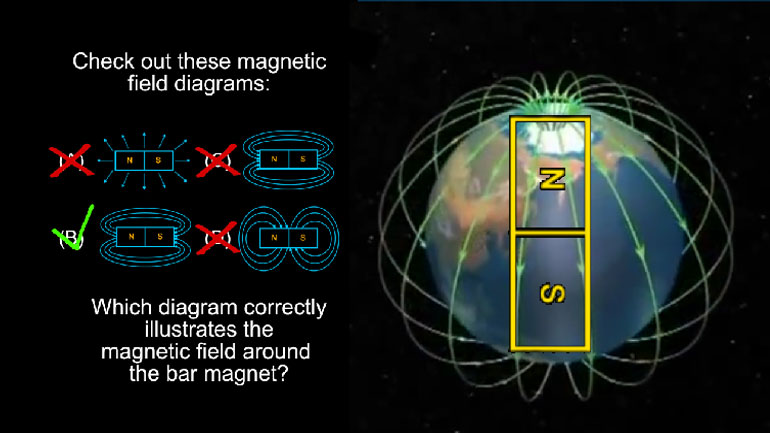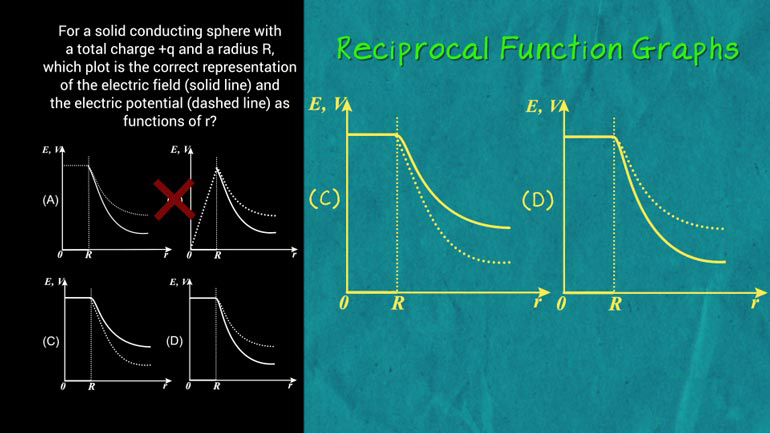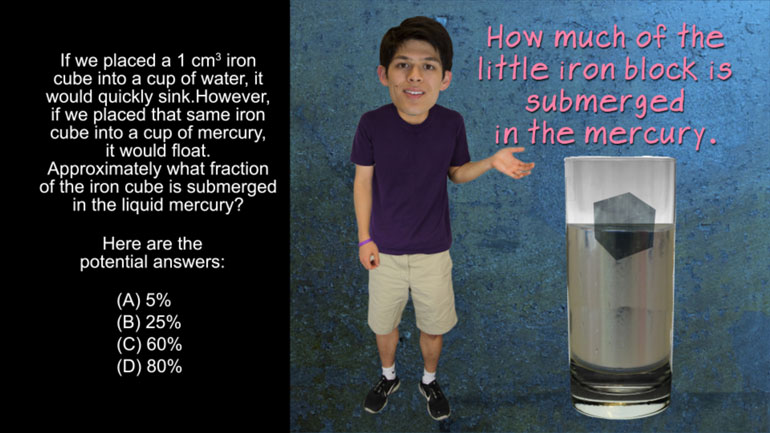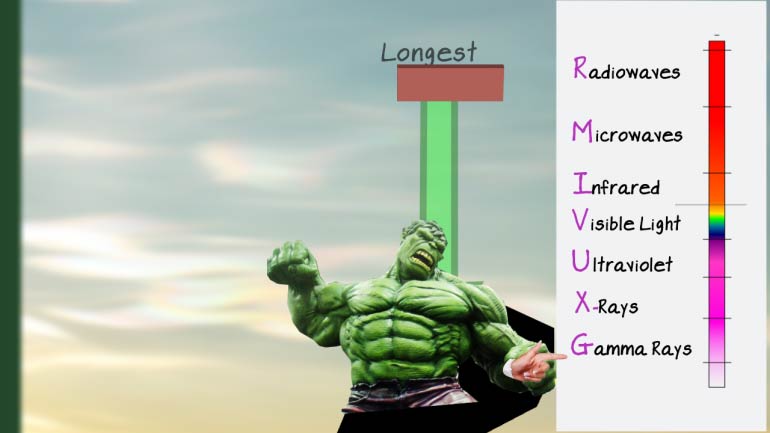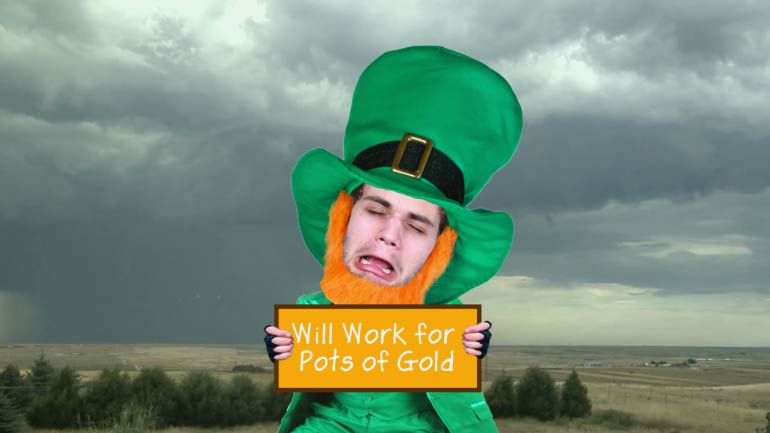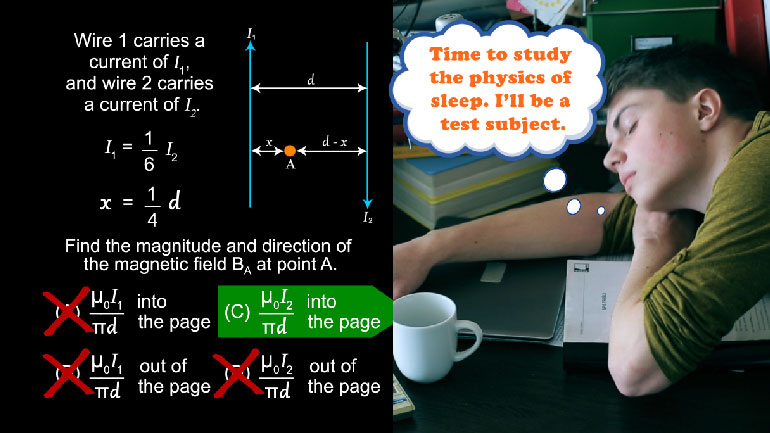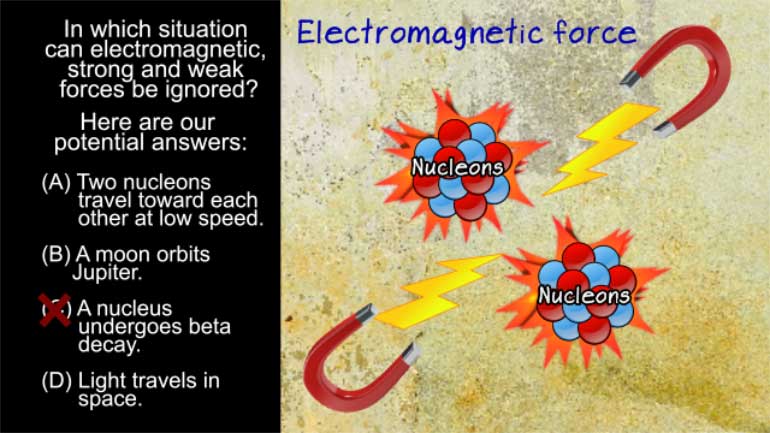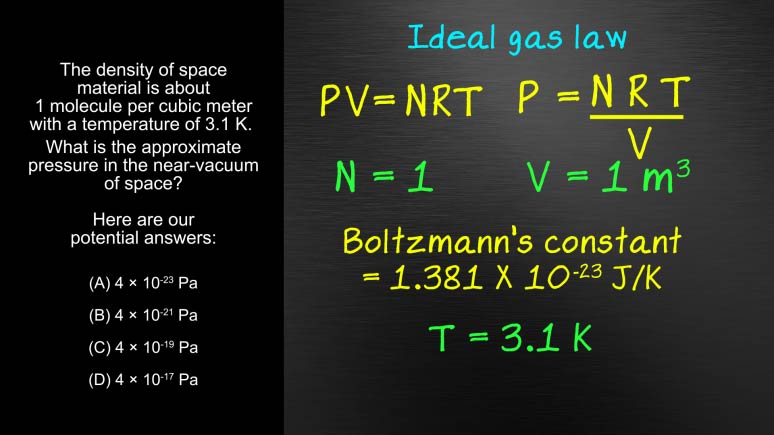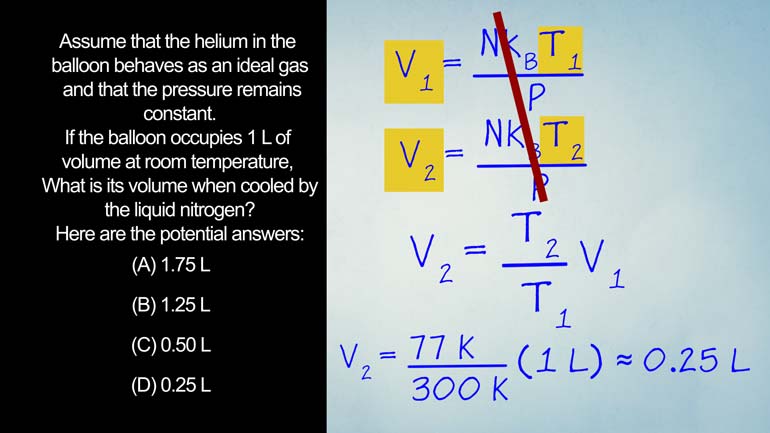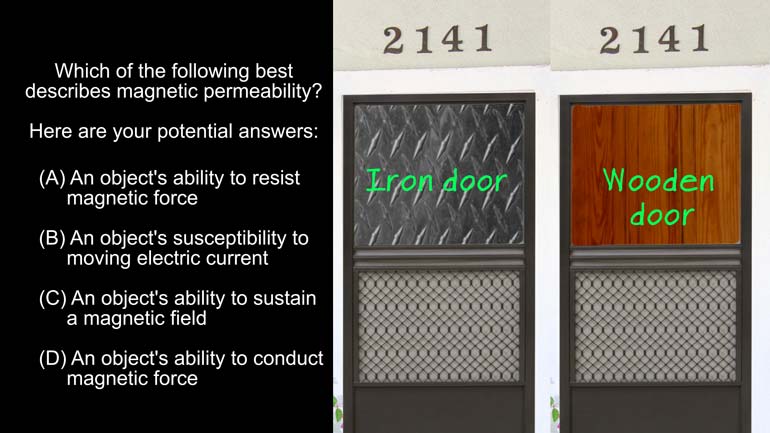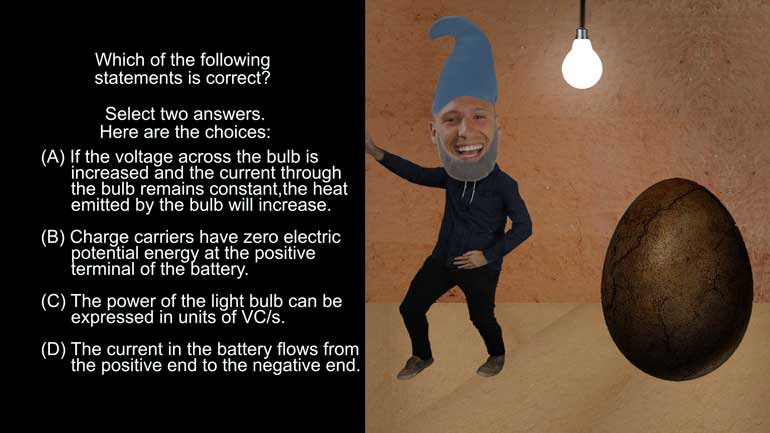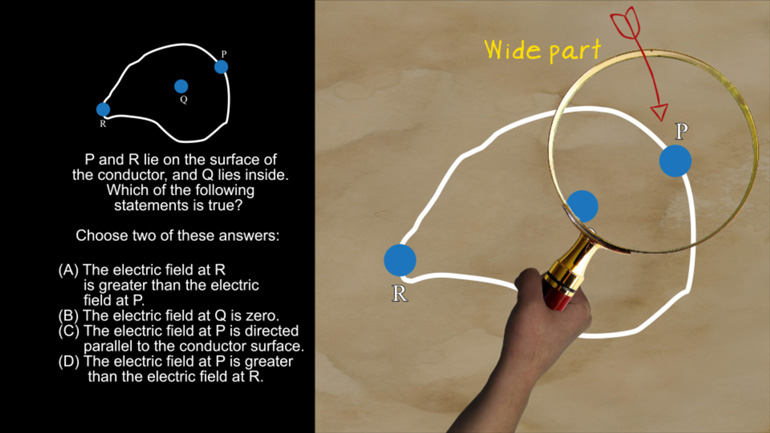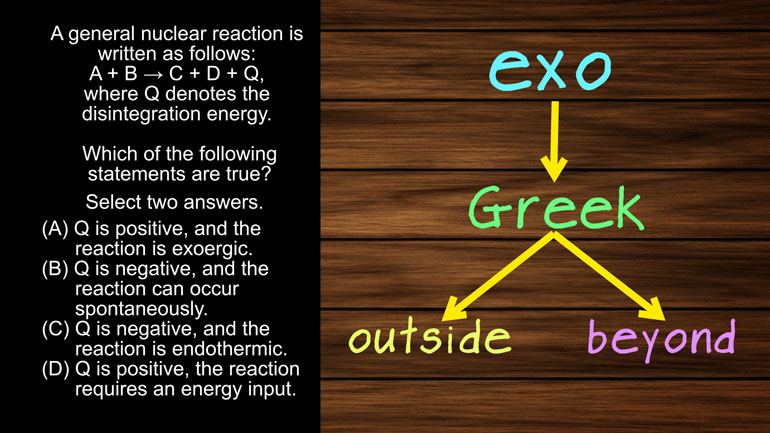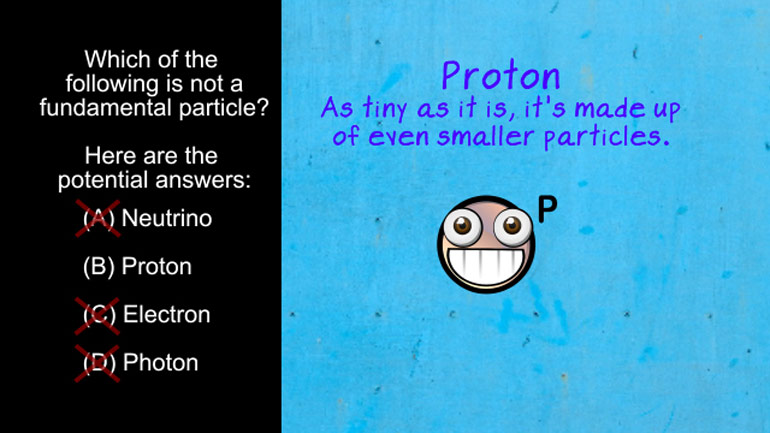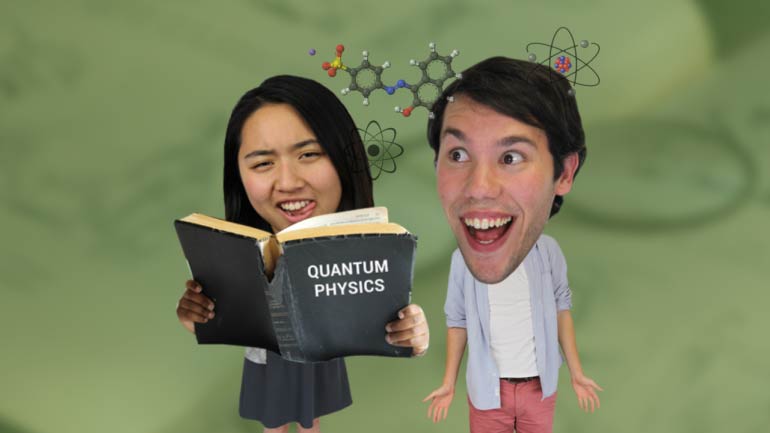ShmoopTube
Where Monty Python meets your 10th grade teacher.
Search Thousands of Shmoop Videos
AP Physics 2 Videos 59 videos
AP Physics 2: 1.1 Properties of Objects and Systems. What is the magnitude and direction of the conventional current in this wire?
AP Physics 2: 1.5 Properties of Objects and Systems. According to the Bohr's model of the atom, which of the following are true?
AP Physics 2: 1.5 Object Interaction and Forces 3 Views
Share It!
Description:
AP Physics 2: 1.5 Object Interaction and Forces. How does the strong nuclear force work?
Transcript
- 00:04
here's your shmoop du jour brought to you by physics teachers
- 00:07
our physics teacher likes to say there are no dumb questions to which we say [Physics teacher in a classroom]
- 00:12
challenge accepted alright a physics student asks her teacher how does the
- 00:17
strong nuclear force work well how can the teacher respond to this and select
- 00:22
two answers, here are the options.....
Full Transcript
- 00:27
well the strong force is what holds the nucleus of an atom [Protons and nucleus held together]
- 00:31
together without it all those positively charged protons would run away from
- 00:35
each other and the neutrons would well just sit there doing nothing for
- 00:38
eternity all right put it that way your cousin Ryan might just be a giant [Ryan laying on couch]
- 00:43
neutron all right but when these particles get close and we mean really
- 00:47
close like 1 times 10 to the negative 15 meters close the strong force can bind
- 00:53
them together and this is what allows there to be elements like gold...and
- 00:57
mercury and oxygen right okay well we're big fans of those elements especially [People basking in the sun on a beach]
- 01:02
that last one but when these nucleons are farther away from each other
- 01:05
electromagnetism keeps them away from each other so answer A is incorrect
- 01:09
right there and answer C is one of our correct choices in order to overcome the
- 01:15
electromagnetic force and become bound together protons and neutrons have to be
- 01:20
moving very quickly and we're not talking about race car speeds, physics [Woman wearing a lab coat on a road and race car bursts into flames]
- 01:24
laughs at how slow race car goes hahaha we mean the kind of speeds found in a
- 01:29
supernova when a star explodes really really really fast or to put it in
- 01:34
scientific terms SuperDuper fast so B is the other correct choice right there and
- 01:39
the strong force got its name for a reason it's the strongest of the four [Strong force flexing biceps]
- 01:44
fundamental forces gravity is a puny weakling compared to the strong force
- 01:49
especially in a scale of protons and neutrons so answer D is definitely out
- 01:53
and remember if you're stumped don't be afraid to ask your physics teacher for
- 01:57
help..Just make sure it's related to physics we asked our teacher for help
- 02:00
changing a flat tire once and well it just didn't go over very well [Man with a flat tire and physics teacher laughing]
Related Videos
AP Physics 2: 1.1 Properties of Objects and Systems. What is the magnitude and direction of the conventional current in this wire?
AP Physics 2: 1.5 Properties of Objects and Systems. According to the Bohr's model of the atom, which of the following are true?
AP Physics 2: 2.2 Properties of Objects and Systems. What will happen as the robot son moves the sponge near (but doesn't touch) the plate?
AP Physics 2: 2.4 Properties of Objects and Systems. How could you show the carnival barker an emission spectrum?
